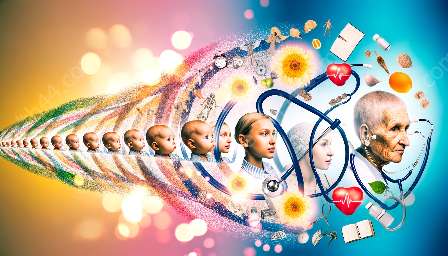Introduction
Learning and memory are complex cognitive processes that evolve across an individual's lifespan, impacting various aspects of human development, health education, and medical training. In this comprehensive topic cluster, we will delve into the intriguing interplay between learning and memory, considering their significance in lifespan development and the implications for health education and medical training.
Stages of Lifespan Development
Throughout the lifespan, humans go through several stages of development, each characterized by unique cognitive, physical, and psychosocial changes. From infancy and childhood to adolescence, adulthood, and old age, the process of learning and memory undergoes significant transformations. Understanding these changes is crucial for tailoring effective educational and medical interventions at different life stages.
Early Childhood and Learning
Early childhood is a critical period for cognitive development, marked by rapid learning and memory acquisition. During this stage, children demonstrate impressive abilities in language acquisition, social learning, and the establishment of foundational cognitive skills. Their memory capacity expands as they learn to encode, store, and retrieve information, laying the groundwork for future learning experiences.
Adolescence and Memory Formation
Adolescence is a period of significant brain development, particularly in the prefrontal cortex, which is responsible for higher-order cognitive functions. This developmental stage is characterized by increased independence, exploration, and the formation of self-identity. Adolescents experience changes in memory processes, such as improved executive functions and the development of metacognitive abilities, impacting their capacity for learning and intellectual growth.
Adulthood and Lifelong Learning
As individuals transition into adulthood, their learning and memory processes continue to evolve. Adult learners engage in lifelong learning, acquiring new knowledge and skills to adapt to changing personal and professional demands. The interplay between learning and memory becomes essential for maintaining cognitive vitality and optimizing educational strategies in adulthood, with implications for health education and medical training in addressing age-related cognitive changes.
Aging, Memory Decline, and Health Education
Aging is associated with changes in memory function, including declines in episodic memory and processing speed. These changes have implications for health education, as older adults may require tailored memory-enhancement strategies to support healthy aging. Moreover, understanding the neurological underpinnings of age-related memory decline becomes crucial for healthcare professionals and educators involved in geriatric care and medical training.
Neuroplasticity and Interventions
In recent years, research has highlighted the concept of neuroplasticity, the brain's ability to reorganize and form new neural connections throughout life. This phenomenon underscores the potential for interventions aimed at optimizing learning and memory across the lifespan. By incorporating neuroplasticity-based approaches into health education and medical training, educators and healthcare providers can design effective interventions to support cognitive enhancement and rehabilitation.
Implications for Medical Training
The understanding of learning and memory across the lifespan has substantial implications for medical training. Healthcare professionals, including physicians, nurses, and allied health practitioners, must comprehend the impact of age-related changes in memory and learning on patient care and treatment adherence. Integrating this knowledge into medical curricula can enhance the quality of patient interactions, optimize treatment outcomes, and promote better healthcare delivery in diverse age groups.
Conclusion
Learning and memory across the lifespan are fundamental aspects of human development, health education, and medical training. By unraveling the intricate processes that underlie learning and memory at different life stages, individuals, educators, and healthcare providers can maximize cognitive potential, promote healthy aging, and deliver comprehensive medical care. The intersection of lifespan development, health education, and medical training offers a rich landscape for exploration, innovation, and the advancement of human wellbeing.


